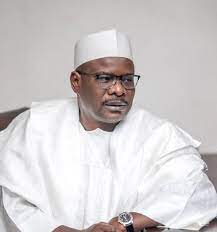During an interactive session with journalists in Kano on Sunday, Senator Ali Ndume emphasized how societal values have contributed to the normalisation of ill-gotten wealth in Nigeria.
Ndume expressed concern that those who embezzle public funds in Nigeria are not only unchallenged but often celebrated for their wealth. “Our biggest challenge in this country is corruption. To this day, we have no laws that can proactively or even reactively address corruption,” he said.
Comparing Nigeria with developed countries, Ndume highlighted the stark difference in attitudes toward wealth. “In developed nations, people question the source of one’s wealth, but in Nigeria, people are revered for flaunting ill-gotten riches,” he remarked.
He criticized the culture of impunity surrounding corrupt politicians. “In our system, especially in politics or government, if someone isn’t corrupt, they are lucky to be God-fearing. Otherwise, in Nigeria, you can steal money, walk freely, and still be celebrated,” he lamented.
Ndume pointed out how sudden displays of wealth are often met with admiration rather than suspicion. “In this country, someone who had no money last week suddenly buys 10 cars and jets, and his family praises him, saying ‘Allah has blessed our son,’” he said.
The senator also revealed that his previous efforts to introduce a law on unexplained wealth had been unsuccessful. He recounted seeking the support of a former head of state, but his attempts “never saw the light of day.” “To this day, there is no Unexplained Wealth Act or Executive Order on unexplained wealth in Nigeria,” Ndume emphasized.
Beyond corruption, Ndume also addressed the issue of hunger in Nigeria. He urged the government and citizens to prioritize agriculture as a solution to food insecurity, noting that “there is hunger in the land, and we have only cultivated about five percent of our blessed land in Nigeria.”



